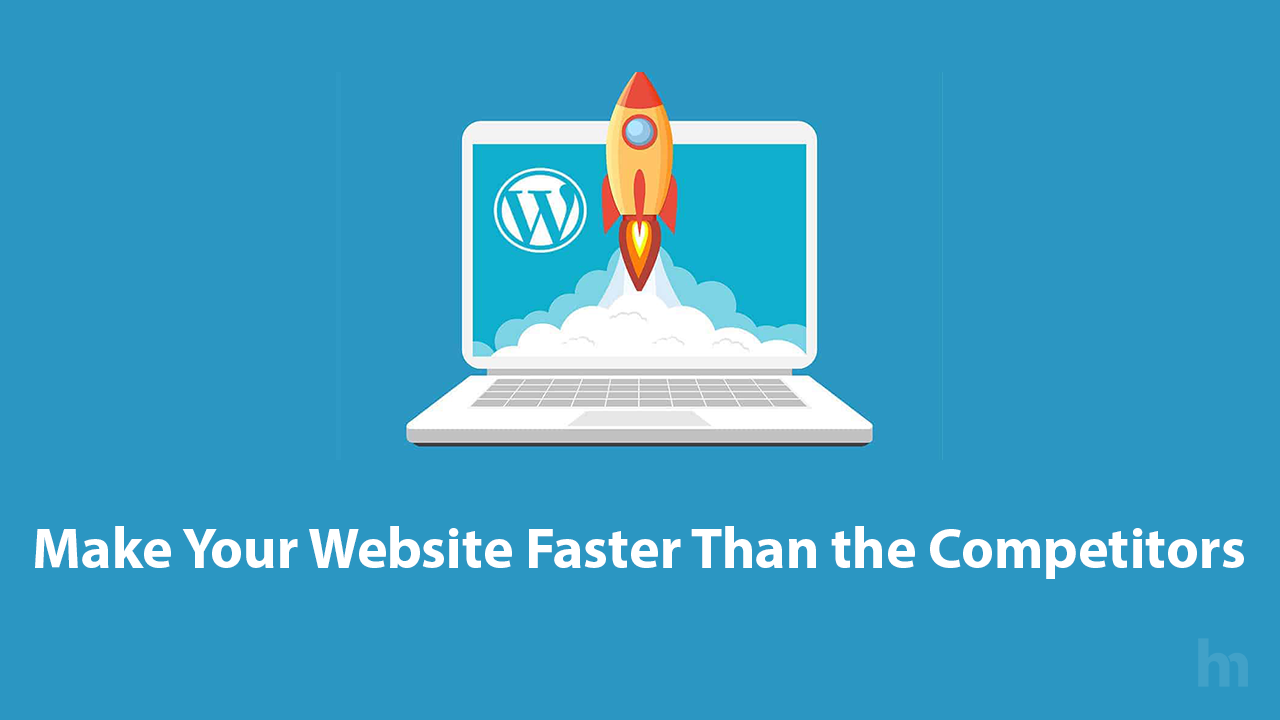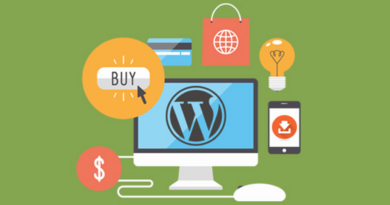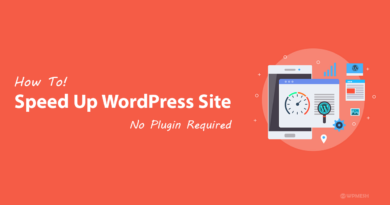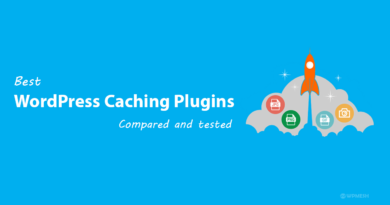How to Make Your Website Faster Than The Competitors in Search

When you get to the point that your brand, i.e. your business, needs a website, you have to keep in mind that it must be a website on which everyone can easily navigate, get all the information they want, and that the news/blogs on it must always be fresh.
Also, you want the opportunity for you or your associates to very easily and meticulously enter any important information on that website. Ultimately, your website must be faster than competitors’ websites, so that you can rank high in search engine results pages.
It’s true that the entire website can be designed and made only by a skilled and trained, i.e. professional programmer but further editing and supplementing of information on it should be enabled to you as easily as possible. That’s why, today, most professional developers often create websites in WordPress because you don’t need some basic programming skills nor serious computer knowledge whatsoever to edit such a website.
For years, simpler and often more cost-effective creation of websites on existing CMS platforms (platforms for dynamic online content management), created and used by hundreds of thousands of people, has been popular. Such platforms have many benefits but are far from not having any disadvantages. On this occasion, we’ll describe in more detail the problem that’s most common on the most popular CMS platform – WordPress with small websites that have too many plugins or a small number of poor quality plugins.

Consequences of Slow Website Loading
Slow loading of the website directly affects the user experience, but also the positioning of pages on Google.
There are several major groups of problems on websites that affect their slowdown:
- Quality of web hosting
There are numerous articles on the Internet about how to choose a good price-quality ratio of web hosting in the context of your needs. We’ll stress MySQL hosting servers who provide top speed, as well as stable and consistent performance. There are several fundamental resources that MySQL database server needs in order to secure fast website loading, such as disk, memory, and CPU. None of these resources mustn’t be weak or overloaded. Otherwise, the database server will perform poorly.
- Web page creation/encoding (HTML, CSS, JS) itself
In the case of popular CMSs such as WordPress, this refers to the selection of free web page/theme templates that often aren’t well coded. You can check how well the pages of your website are created (regardless of who created them and how), for example, through a variety of free code validation tools, starting with the HTML validator page W3C Markup Validation Service. The goal is that these tools show 0 errors after fixes.
- Programming and creating an optimized database
In the case of popular CMSs such as WordPress, this refers to the selection of well-created plugins by developers and teams that have built their good reputation in this field.
- A good basic CMS platform setup like WordPress
This refers, for example, to reducing the number of possibilities to create a large number of copies/revisions of the same document/web page, number of draft documents, spam content, image compression, gzip compression of documents, enabling page caching…
- The degree of “awareness” of development teams that create websites
This awareness is related to the work that must be done in connection with the development of the website, and not directly related to programming and design. This refers to the real knowledge of individuals and teams on how to optimize code and databases, on knowledge in the field of protecting websites from hackers, adding tools to monitor the effects of promotion and sales such as Google Analytics and Google Webmaster Tools (Google Search Console)…
The Number of Plugins for a WordPress Site Isn’t Important, but Their Build Quality Is
It’s very common for a website with a small number of webpages (less than 50 or 100 pages) and low traffic (less than 1,000 visitors or only a few thousand visitors per month) to search for web hosting features for much larger and more visited websites. This is almost always due to unoptimized code and/or unoptimized plugins database. This may be the case when adding a large number of free/unverified plugins or a poorly done/coded theme, but often one very poorly done plugin is enough to damage the entire website.
In most cases, adding more plugins to a WordPress website slows down that same website because those plugins increase the amount of codes loaded on its web pages. The fact is that in most cases, a smaller amount of codes on a web page makes the website load faster. But, well-optimized coding and well-optimized databases in today’s technological environment, of better quality web hosting services, cope quite well with these “more burdened” pages.
So, the problem isn’t in the increased number of plugins for WordPress, because adding these previously made pieces of codes is one of the biggest advantages of this platform, but the problem is their build quality or, professionally speaking – the scalability of plugins.
Of course, this assessment is very general and depends on the specific type of coding, its function, complexity… What’s important is that the person or persons who should maintain your website make a model of the created website that’s optimized according to page load time, in relation to the needs and function of that website.
If a smaller website has a real need to create elements that require more technical resources (read – more expensive web hosting), that’s fine but in practice, it very rarely happens that this is the case. It’s a much more common case that a website simply isn’t well optimized for fast loading.
To test the page load speed of your website, you can test any of the pages. For instance, you can do it via Pingdom Tools or to track what Google thinks about the load times of your pages via the free Google Search Console.
It’s enough to monitor the page load times (certainly it isn’t good if the load time is more than 2-3 seconds) and, at the same time, monitor the number of queries to the database during loading pages (requests). The smaller the number, let’s say under 50 queries per page, that’s better.
Conclusion
It’s important that, no matter how unfamiliar with the technology you are, you have an idea of what matters for creating a quality website that’s good for users (visitors shouldn’t have wait for the requested page to load because of the low quality of your website), and therefore, it’s more visible on search engines.
Requests to optimize the loading speed of your website go to the creators of the website (this isn’t your job), or to the individual or company that does its maintenance. If that individual or company doesn’t do what’s required of them – it only means that other people should be hired for this job.


